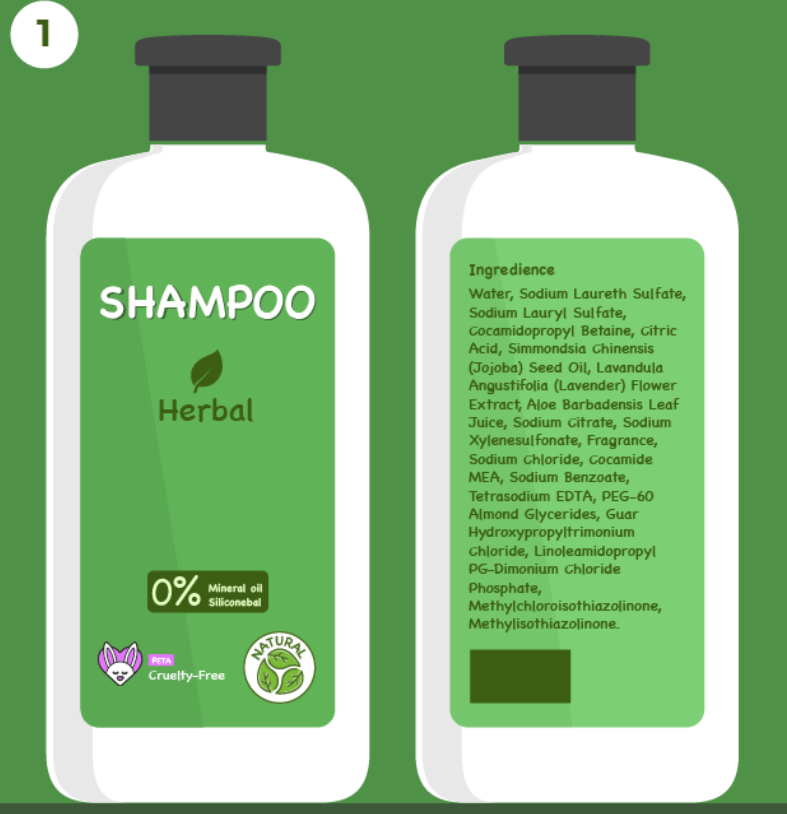Have you ever heard this term before? It may be the first time you’ve heard the word, but you’ve certainly heard the phrase misleading advertising. In simple terms, greenwashing (GW) is the spreading of false or incomplete information to attract people to your side [1]. Information that an organisation, company or products are green, behave environmentally friendly way and that you are helping the planet by your choice. Except it is not the case – that’s what greenwashing is.
It doesn’t always have to be intentional, sometimes it is just the ignorance of companies that is to blame [2]. However, that doesn’t change the fact that greenwashing is harmful. People who try to behave in an eco-friendly way often lose the will to continue to behave responsibly after finding out about the deceptive information. GW can therefore reduce the trust in green products. You will recall debates about overpriced organic eggs, milk and the like being of inferior quality to commercial products. Anything can happen.
That is why it’s important to know where to look for this information and how to interpret it, in order to understand if products, companies, and organisations are truly good quality, and environmentally friendly. It is virtually impossible to understand many eco-labels and product labels. There are more than 200 active eco-labels in the European Union and more than 450 worldwide [3]. The Green Deal for Europe seeks to address this problem by arguing that companies and organisations should be able to back up their claims with real results based on an environmental impact assessment methodology [4].
Examples of greenwashing have already been pointed out in the media, so let’s hope that companies will soon learn from such practices and stop misleading their consumers (link to articles here and here). There are plenty of other companies that have committed greenwashing, whether it is non-degradable paper straws in fast-food chains or similar problem with plastic bottles [5]. For now, we have no choice but to read carefully, take an interest and be wary of incomplete information. In this article we will show you the most common things to look out for so that you don’t fall for greenwashing!

Examples of GW:
- Often, companies only provide the part of the information that is attractive to consumers: e.g. that a lotion contains 100% of organic avocado and put it in green packaging. However, the whole product contains less than 0.01% avocado and the other ingredients may not be organic/eco at all.
- Flattering names such as organic, nature, natural, eco, etc. are often just marketing gimmicks.
- Packaging made from 75% recycled material. Information on what the rest is made of is missing. Such packaging may no longer be recyclable at all or very difficult to recycle.
- The product is free of parabens, silicones and the like. What does it contain instead? This is no longer specified by the manufacturer. The manufacturer therefore again uses only the part of the information that the consumer wants to hear.
- The packaging is 100% recyclable. WOOOW! Great advertising, no shortage of green packaging with nature motifs. What’s inside the packaging though?
- Information that the company has reduced emissions by 40% in production. Yeah? In the whole production?
- Reduction of plastic usage on a particular product by 20%. Noble, but why is paper added around the plastic cup (often seen in yoghurt)? For us, it’s extra work to take off the top, take off the paper, separate the materials and sort. From what I know from experience, people don’t do this because it’s just “too complicated”.
- Simply because something is natural – carmine, bile, urea, lanolin (fat from sheep’s wool), wax, or some herbal extracts – it doesn’t mean that the overall product is sustainable or friendly to the environment and wildlife. The substances mentioned are natural, but the word natural is not defined by law.
- As with recycling, information on compostability is often misleading. How, where and under what conditions you should compost in a normal household is not explained. Composting is a science and I would like to see someone compost diapers on a home compost pile 🙂 .
- The product is 100% biodegradable. Let’s hope so! Under what conditions? What about the product packaging?
- An eco-friendly product in harmony with nature… Beautifully written, but what does it mean? 😃
- Products in green packaging with a nature motif do not necessarily mean an organic product. Often, however, they will attract attention at the first glance and that’s the point.
- Pointing out what the product doesn’t contain, without mentioning the full ingredient list (often diapers, washing powders, but also shampoos or decorative cosmetics [6]).
How not tot fall for the “green brainwashing”?
- Information rules the world, so read more than just what the manufacturer wants. This means finding out the full ingredients list of the product, brands, what materials the product is made of, etc.
- Don’t just settle for a picture of nature, green packaging and the like, but read everything you possibly can.
- Calculate the percentage of so-called organic ingredients, if any.
- Find a product or company that has proven (e.g. with a credible certificate) that it is both environmentally friendly and fair to its employees (which is not easy 😕). Pick a few brands, read up on them from credible sources [7].
- Find local manufacturers – mostly smaller local producers who only make “home-made” products in smaller retail quantities.
- Choose ingredients from local or nearby suppliers or seek information about what the ingredients really are and where they were sourced. If a manufacturer states this, then there is a greater chance that they are not lying and that they are being responsible.
- None of us are likely to immediately run to the authorities to complain or contact experts on the subject of greenwashing. There is a possibility to report these unfair practices to the Czech Trade Inspection Authority (COI).
Sources
[1] https://eur-lex.europa.eu/CS/legal-content/summary/unfair-commercial-practices.html
[2] https://www.nogreenwashing.cz/
[3] https://ec.europa.eu/environment/eussd/smgp/initiative_on_green_claims.htm
[4] https://commission.europa.eu/strategy-and-policy/priorities-2019-2024/european-green-deal_en
[5] https://dvazelenaci.cz/greenwashing/
[7] http://zelenenakupovani.cz/web/www/zaloha/cenia-akt-tema.nsf/$pid/MZPMSFOS8F78


0 Comments